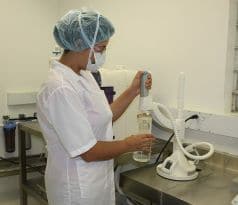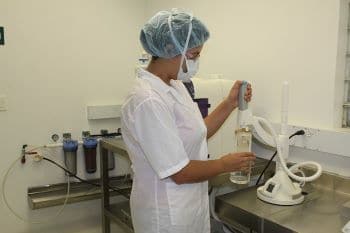Is Pediatric Genetic Testing Right for You?


Although genetic testing is typically used in either the pre-pregnancy or pregnancy stages, it can also be used after birth. In fact, pediatric genetic testing can be an incredibly useful and insightful process, especially if a child has begun displaying symptoms of a genetic condition. It is common for many genetic conditions to remain undetected during pregnancy, as well as during a child’s first few months of life.
So when should you consider genetic testing and what are the benefits of undergoing the procedure? You can learn more in our brief guide to pediatric genetic testing or read more below for a breakdown of what pediatric testing is and when it is recommended.
Instances Where Pediatric Genetic Testing Is Recommended
A variety of different genetic conditions can be uncovered by way of genetic testing, before trying to conceive, during pregnancy, and after birth. Moreover, modern technology has allowed for the development of personalized DNA test kits for disease risks that can provide insight into the likelihood of developing certain diseases or conditions even before conceiving.
If your child is displaying symptoms of the following conditions, a doctor might suggest genetic testing:
- Intellectual disabilities
- Developmental delays
- Seizures
- Heritable heart problems
- Immune disorders
- Hormone imbalances
- Anatomical birth defects
While many of these conditions can be visually confirmed, many of them share physical symptoms and their origins may be unclear. Pediatric genetic testing can help your pediatrician confirm a particular diagnosis. Once the diagnosis has been confirmed, they can begin creating or refining a treatment plan to best suit a child’s needs.
How Can a Genetic Disorder Be Inherited?
If neither you nor anyone in your immediate family has a genetic disorder, genetic testing may seem unnecessary. However, it’s important to gain an understanding of how, exactly, conditions such as these are inherited—genetics and heritability are not always a straightforward process and you may still have passed a genetic disorder to your child, even if you’re not aware that you’re a carrier. Genetic testing can reveal any of the following types of disorders.
Autosomal Recessive Disorders
In order for an autosomal recessive disorder to be passed down from parent to child, it is necessary that both parents carry the gene for the disease. However, carriers may not display any outward symptoms. Hence, it is entirely possible for both parents to be carriers of a disorder without either one being aware of it. If both parents are carriers, there is a 25% chance that their offspring will develop the condition, as well as a 50% chance that the child will also be a carrier.
Autosomal Dominant Disorders
Autosomal dominant disorders are inherited when just one parent has the condition and passes it on to their child. However, it is possible for the parent to have a far less severe or symptomatic version of the disease and potentially pass on the disease without knowing. Their offspring could end up developing the same condition, although in a much more severe form. Autosomal dominant disorders can also develop as a result of genetic mutations. In that case, no inheritance is necessary.
X-Linked Disorders
These conditions develop following a mutation of a gene on the child’s X chromosome. As a biological male has only one X chromosome, these conditions tend to impact boys more severely than girls, who have a healthy copy of the chromosome. In these instances, a mother may be unaware that she has an X-linked condition, only to see it develop in her son.
Mutations in the Mitochondrial DNA
These mutations occur within the cell’s mitochondrial DNA and often affect the generation of mitochondrial proteins. Both male and female children could inherit one of these mutations from their mother, who may be asymptomatic. These mutations can also be new, meaning that they aren’t inherited from either parent.
Is It Time to Consider Pediatric Genetic Testing?
If your child is currently displaying symptoms of a genetic disorder, pediatric genetic testing can be an important step towards a diagnosis. After testing, it will be easier for your pediatrician to formulate a treatment plan to address whatever the results are.





